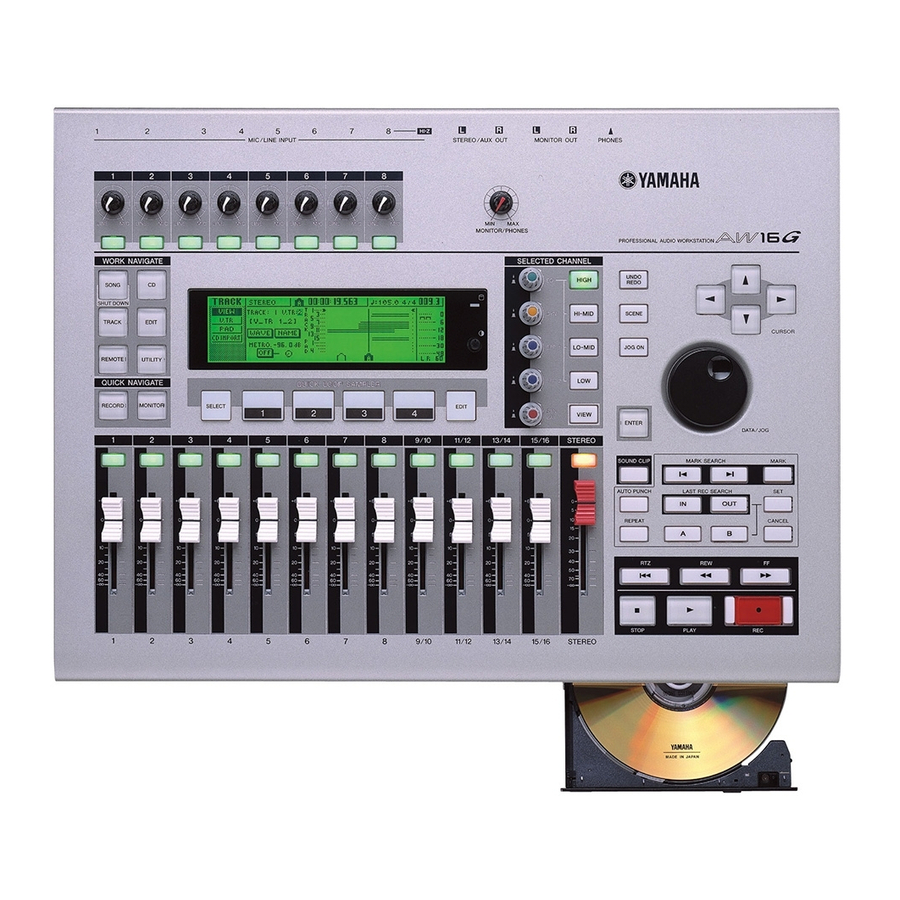Yamaha AW16G Recording 101 Owner's Manual - Page 25
Browse online or download pdf Owner's Manual for Musical Instrument Yamaha AW16G Recording 101. Yamaha AW16G Recording 101 27 pages. Professional audio workstation

Glossary
Note: Additional glossary words can be found online at the following web address:
http://solutionsnetwork.yamaha.com
A/D Converter: Analog to Digital converter — An electronic device for converting
analog signals to digital signals. The analog signal is sampled every few
milliseconds and its level is quantized into a digital word. The larger the digital
word, the more accurate the representation of the analog value.
Balanced Cable: A cable that has dual (two) wire conductors. XLR and TRS
cables are examples of balanced cables.
BPM: Beats Per Minute — The number of steady even pulses in music occurring
in one minute and therefore defining the tempo.
CD: Compact Disc- Trademark term for the Sony-Phillips digital audio optical
disc storage system.
CDR: Compact Disc Recordable — A CD that can be record CD-ROMs and
audio CDs. Data written on a CDR cannot be erased.
CDRW: Compact Disk ReWritable — used to refer to a disc or CD technology
that enables a disc to be recorded, erased, and recorded multiple times.
Compressor: A signal processing device that is used to reduce the dynamic
range of the signal passing through it.
Condenser Microphone: A microphone that has a gold-coated plastic
diaphragm mounted above a conductive back plate. The diaphragm and back
plate, separated by a small volume of air, form an electrical component called a
capacitor (or condenser). A voltage between 9 and 48 volts (also known as
phantom power) is applied to the diaphragm by an external power supply,
charging it with a fixed, static voltage.
As the diaphragm vibrates in response to sound waves an electrical
charge is induced that is an electrical representation of the acoustic sound wave.
Dynamic Microphone: A microphone that is made up of a flexibly mounted
diaphragm that is coupled to a coil of fine wire. The coil is mounted in the air gap
of a magnet so that it is free to move back and forth within the gap. When sound
waves strike the diaphragm, the diaphragm will vibrate. As the diaphragm
vibrates it will in turn cause the coil to move back in forth in the field of the
magnet. As the coil cuts through the lines of magnetic force in the gap, a small
electrical current is induced in the wire, which is an electrical representation of
the sound wave. The dynamic microphone is the most common type of
microphone.
22
